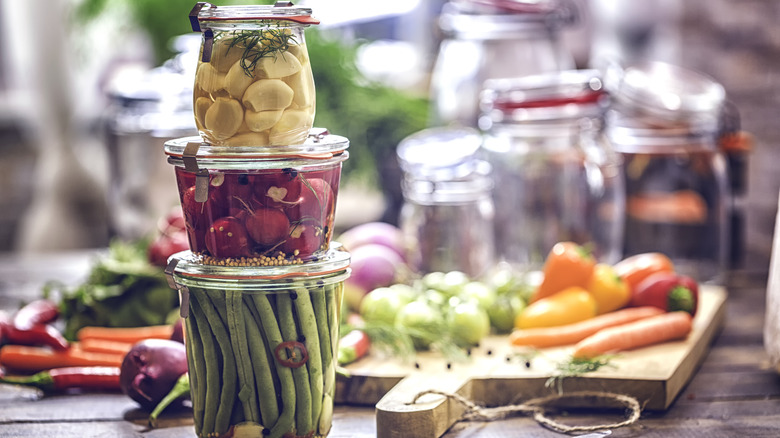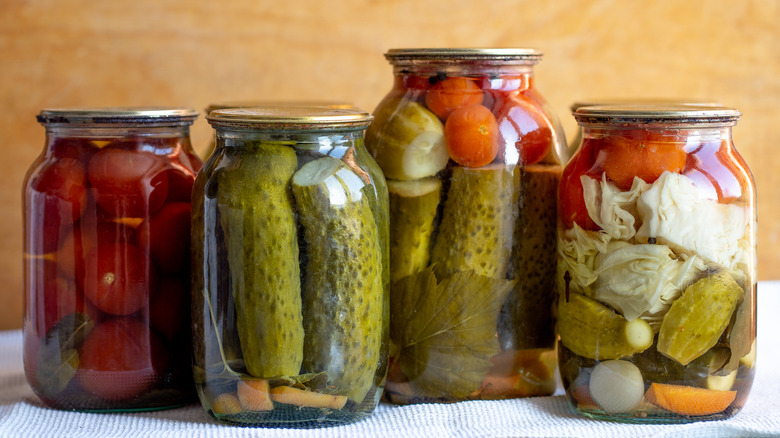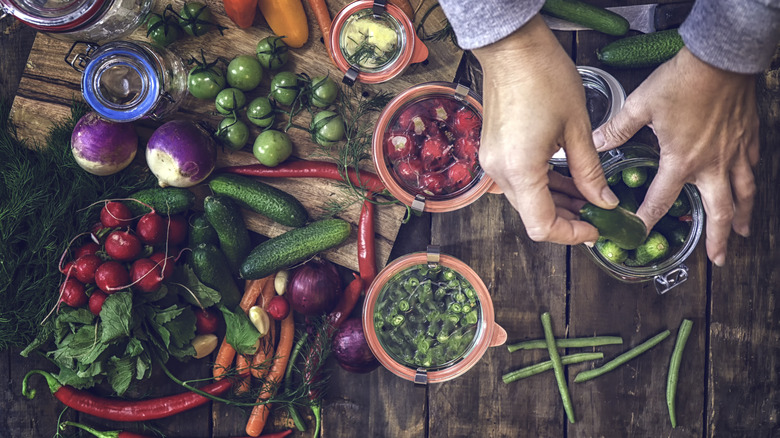For The Crispest Possible Vegetables, Try A Quick Pickle
Whether you get vegetables from the grocery store, farmers market, or your garden, keeping vegetables fresh all week can be a challenge. If you love crisp veggies but hate when they get soggy after a few days, quick pickling is the solution for you.
Quick pickling your vegetables not only helps them stay fresh in the fridge for longer but enhances their taste. This process makes vegetables crisper by preserving their pectin, a fiber found in fruits and vegetables that gives them their natural crunchiness. Plus, quick pickling can be accomplished with ingredients that you most likely already have in your pantry, like vinegar, salt, and lemon juice.
Quick pickling is exactly what it sounds like, which means they don't taste as briny as fully pickled vegetables. It only requires a simple brine and a bit of time in the fridge, whereas normal pickling takes anywhere from a few days to a week.
How to quick pickle vegetables
Quick pickling times vary depending on the type of vegetable and how they're cut. Something like thinly sliced red onion or shallots will be ready to eat after about 30 minutes, while sliced cucumber or celery should be stored in the fridge overnight, and carrot spears will take a few days before they taste pickled. When it comes to quick pickling, the longer you let the vegetables sit in the brine, the more pickled they will taste.
For the perfect quickle, all you need is a vinegar-based brine. Start with this simple ratio: one cup of white vinegar and one cup of water for every pound of vegetables. To save even more time, you can heat the brine in the microwave until hot to the touch (about two minutes) then pour it over the vegetables. Make sure there is about one inch of room at the top of the jar to prevent the jar from overflowing when the vegetables expand from the hot brine.
You can also try apple cider vinegar for a slightly tart flavor, or rice vinegar for a milder flavor. This brine works great with fresh herbs, like dill or rosemary, and smashed garlic. If you're looking for a bit of extra flavor in the brine, try adding one or two teaspoons of various whole peppercorns, mustard seeds, coriander, or red pepper flakes.
The differences between pickling and quick pickling
To store your quick pickled veggies, tightly seal the jar with the lid and let the brine come to room temperature, then keep it in the fridge. While fully pickled vegetables last about two months if kept in the fridge, quick pickled vegetables will only last up to one month because they are not fermented. If you need to preserve a large amount of vegetables, it's better to fully pickle them so you have more time to eat them before they go bad.
Quick pickling doesn't have the same health benefits as typical pickling, either. The fermentation process of pickling creates probiotics, which are beneficial to gut and digestive health. Although quick pickling may be a great way for you to get vegetables in your daily diet, it doesn't create the same probiotics found in fermented foods. But if you're just looking for the perfect topping for your avocado toast or a crunchy mid-day snack, quick pickling is the trick you need.



